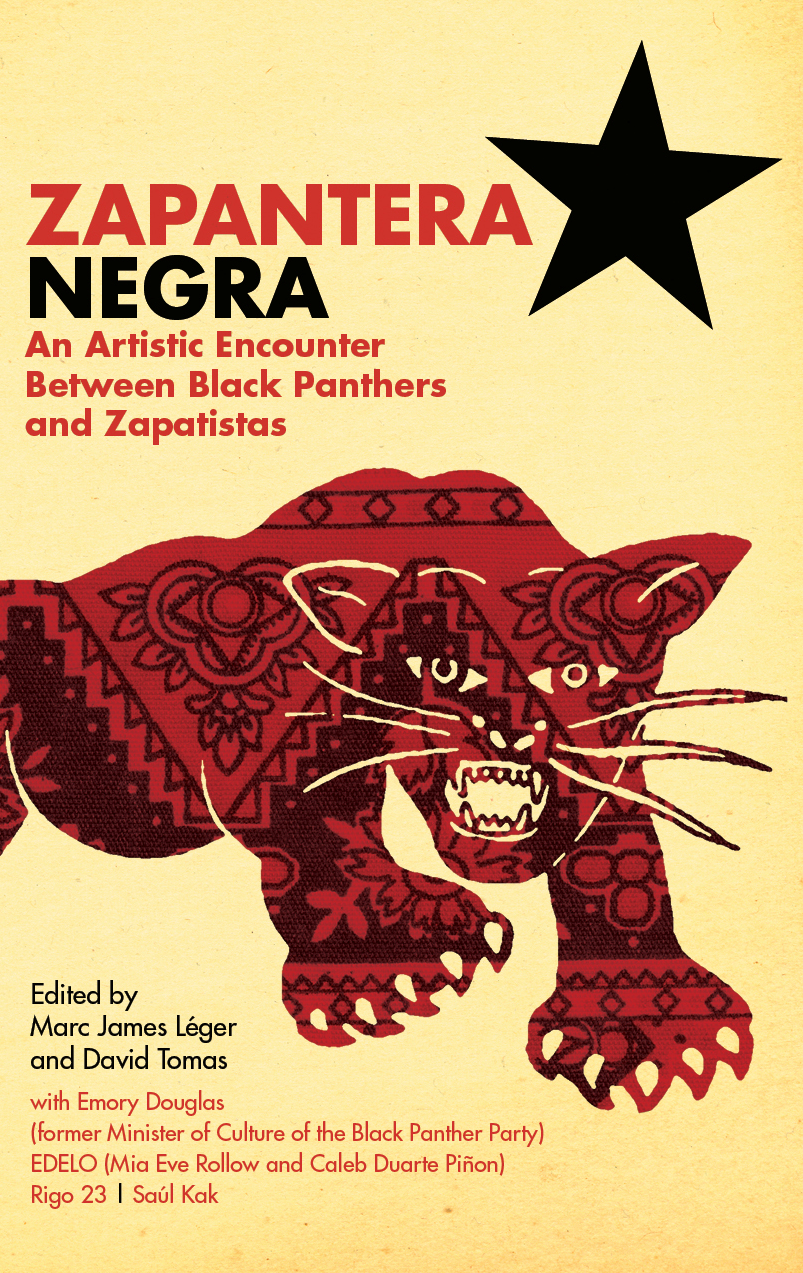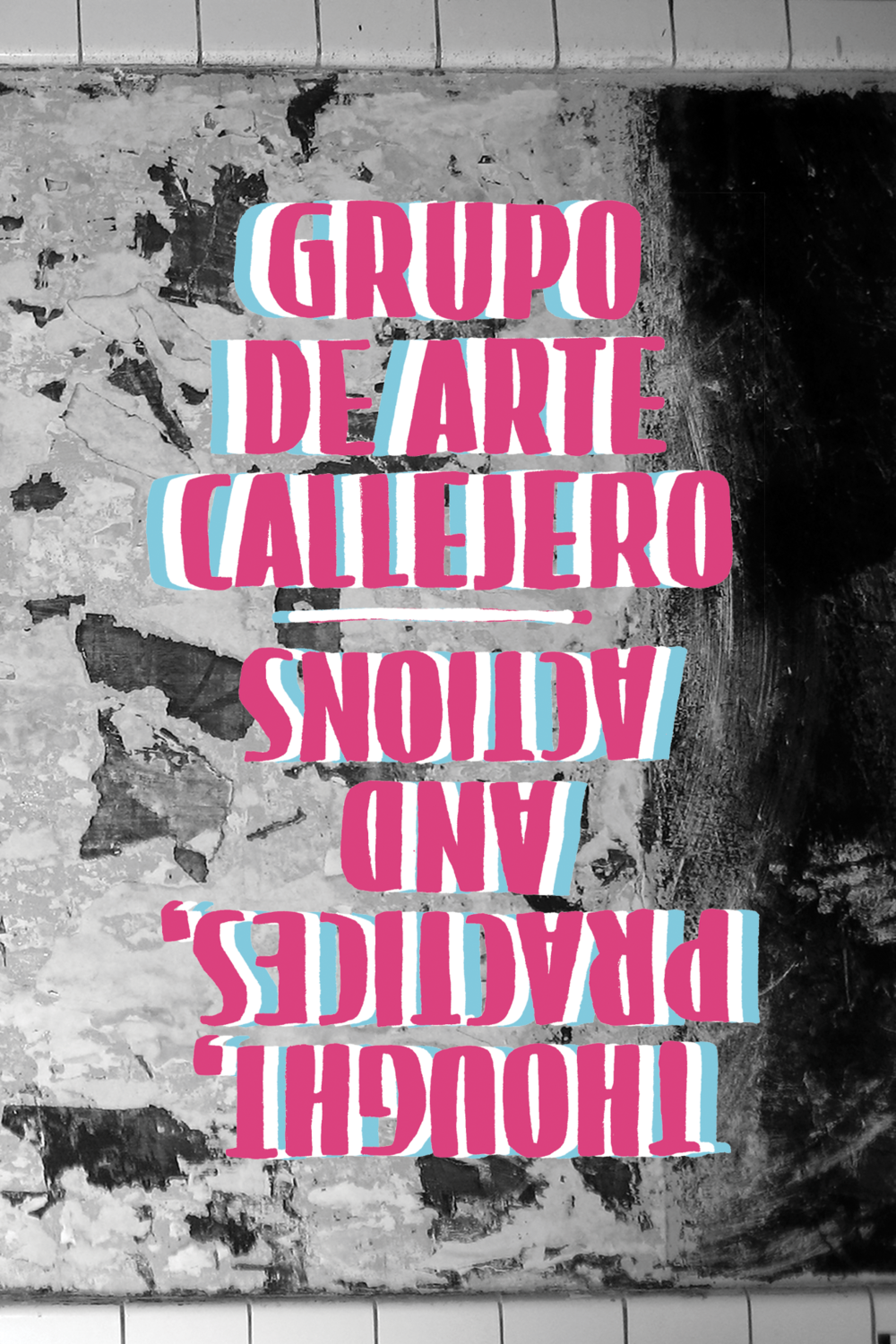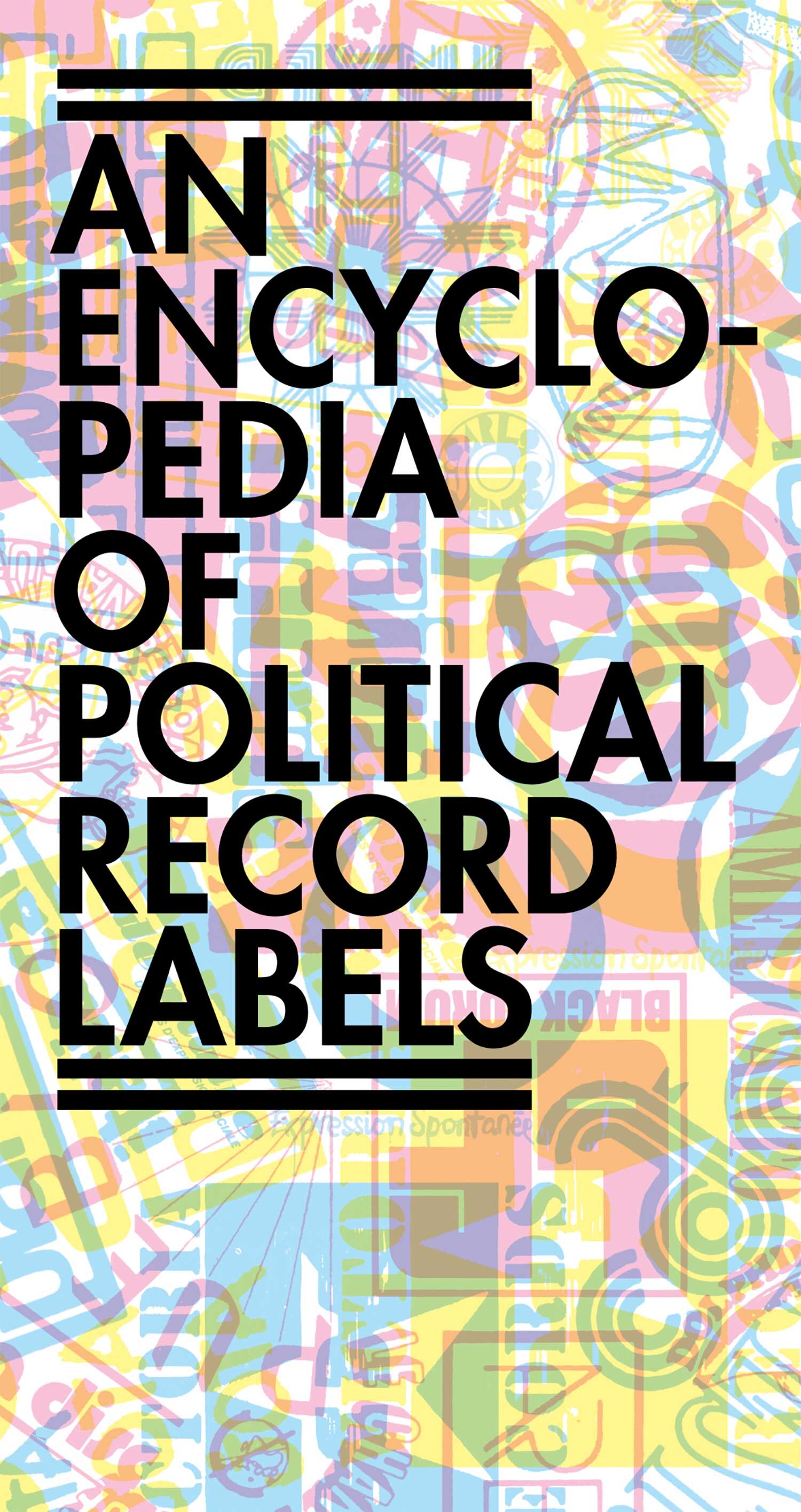TAKE CARE OF YOUR SELF
Sundus Abdul Hadi
Artist Sundus Abdul Hadi’s reflections on self-care as a community act depict care as crucial to creating a just society.
“Take care of yourself. How many times a week do we hear or say these words? If we all took the time to care for ourselves, how much stronger would we be? More importantly, how much stronger would our communities be?”
In Take Care of Your Self, Sundus Abdul Hadi turns a critical and inventive eye to the notion of care and how it relates to social justice. In contrast to the billion-dollar industry of self-care, Abdul Hadi identifies care as a necessary practice—rooted in self, community, and the world—in the collective process of decolonization, empowerment, and liberation.
Abdul Hadi explores the role of art in building regenerative narratives to confront and undo systemic oppression and trauma. Weaving in the work of visionary transcultural artists who engage the liberatory intersections of struggle and care, Abdul Hadi centers the voices of those most-often relegated to the margins and emphasizes the importance of creating brave spaces for their stories and art. The transformative power of care exists in these spaces, building a foundation for a world in desperate need of healing and change.
advance praise
“Take Care of Your Self turns upside down and inside out the meanings of self-care, illuminating for us decolonial futures through our collective healing. Sundus Abdul Hadi invites us into the most intimate valleys of her own healing journey—taking us gently by the hand to show us the visionary work of artists while rooting us in the fertile soils nurtured by Black, Indigenous, anticolonial, and feminist thinkers—and pointing to the revolutionary potential of transnationalism. Take Care of Your Self left me elated, floating a bit with the buoyancy that hope offers.”—Noura Erakat, author of Justice for Some: Law and the Question of Palestine
PRODUCT DETAILS
Author: Sundus Abdul Hadi
Foreword by Emily Jacir
Publisher: Common Notions
ISBN: 9781942173182 (print)
ISBN: 9781942173403 (eBook)
Published: November 2020
Format: Paperback
Size: 8x5
Page Count: 144
Subjects: Art/Self-Care/Decolonization
Featuring words and artwork by Emory Douglass, Leila Abdelrazaq, Ahmad Naser-Eldein, Monique Bedard, Roï Saade, Jessica Powless, Susu Attar, Jihan Kikhia, Sadaf Rassoul Cameron, Narmeen Hashim, Niti Marcelle Mueth, Shanna Strauss and Kevin Calixte, Nora Patrich, Samira Idroos, Tara Jaffar, Julay “Sacred Spirit Ink” and Allos Abis, Joseph Cuillier, Suhad Khatib, and Dana El Masr.
aBOUT THE AUTHOR
Sundus Abdul Hadi is an Iraqi-Canadian multimedia artist and writer. Born in the United Arab Emirates, she was raised and educated in Montreal, where she earned a BFA in Studio Arts and Art History and a Masters in Media Studies. Her work critically engages the concepts of care, community and struggle. Her artistic practice is a subversive and sensitive reflection on war, trauma and representation, using manipulated photographic imagery, mixed-media painting, artist books and sound. She is the author-illustrator of Shams, an illustrated book about trauma, transformation and healing (We are the Medium, 2020). Complimenting her studio practice, Abdul Hadi curates exhibitions as artist-curator, most recently with the research-creation exhibit project featured in her book of the same name, Take Care of Your Self. She is the cofounder of We Are The Medium, a global multidisciplinary artist collective, publishing house, and cultural hub.
Her work has been exhibited in Palestine, UAE, Canada, USA, France, New Zealand and the UK. She has given workshops in Australia, Iraq and Kuwait, and has been a speaker at Nuqat, the Nobel Peace Prize Forum, the Aga Khan Museum (Toronto), Telfair Museum (Savannah GA), NYU New York, and multiple universities in Canada and the US. Abdul Hadi is a two time recipient of the Conseil des Arts et des Lettres du Quebec
(CALQ) Vivacite grant, and received the Makers Muse award from Kindle Project (2018).
Her work is part of the Barjeel Art Foundation collection.
ABOUT THE ARTISTS
Leila Abdelrazaq is a Palestinian author and artist born in Chicago and currently living in Detroit. Her debut graphic novel, Baddawi (Just World Books, 2015) was shortlisted for the 2015 Palestine Book Awards and has been translated into three languages. Leila is cofounder of Maamoul Press, a multidisciplinary collective creating, curating, and disseminating works by marginalized creators at the intersections of comics, print making, and book arts. lalaleila.com / @lalalaleilala
Allos Abis is a community organizer and youth arts educator.
Susu Attar is a multimedia artist born in Baghdad and raised in Los Angeles. Throughout the various manifestations of her work, Susu leads her audience on a search for moments of empathy and transformation. She is a member of SEPIA Collective, an artist-run organization whose work includes organizing the ICONIC: Black Panther exhibition. susuattar.com / @susuhantusu
April Banks is an artist, traveler, and the producer of Tea Afar, a nomadic storytelling project. Her creative career spans art, design, and social practice. As a traveler and story maker, she explores the complicated privilege of a being a Black woman with an American passport. Her life goals involve squeezing bread and other people’s babies. aprilbanks.com / @teaafar
Monique Bedard (Aura) is a neurodiverse Onyota’a:ka/French-Canadian art maker who is currently based on Dish With One Spoon Territory, in Tkaronto. Aura is also a Diploma Toronto Art Therapy Institute Candidate working on an art as transformation/healing program called “Our Stories Our Truths” (OSOT) that is dedicated to creating a safe space for urban Indigenous youth to connect with and build meaningful relationships with mentors in the Indigenous community of Tkaronto. moniqueaura.com / @monique.aura
Sadaf Rassoul Cameron is a first-generation Afghan-American artist who uses photography, words, and time travel to document and express a post-apocalyptic narrative. Sadaf has exhibited her work in various international venues. Sadaf’s work is part of the permanent collection at Albuquerque Museum of Fine Art. Sadaf is currently the Director of Kindle Project. sadafcameron.com / @sadafcamera
Joseph Cuillier is a multidisciplinary artist from New Orleans who explores abstraction as a technology, language in space, and the history of Black radical pedagogies through social practice, installation, textile art, and design. Cuillier’s installations use fashion and architecture to render bodies in space and bodies in action, attempting to bridge gaps between living and form. He is the founder and codirector of The Black School, an experimental radical Black art school, and the art and music festival Black Love Fest NYC. josephcuillier.com / @josephcuillier
Dana El Masri is an Arab-Canadian perfumer and interdisciplinary artist. She is the owner and creator of Jazmin Saraï, a perfume brand exploring scent, sound, and culture. Her interdisciplinary work includes olfactory installations, most recently revolving around multisensory movement and synesthetic practice, such as in the piece Σmotion. jazminsarai.com / @jsparfums
Jess Glavina is a second-generation Canadian settler writer, geographer, media- and performance-maker, and manual therapist. The theater piece ACOUS!: A Chorus of Unidentified Singers was supported by the Revolution They Wrote Short Works Feminist Theatre & Performance Festival in Tio’tia:ke (2016), with dramaturgy by Adjani Poirier and developed-in-process with Annick MF and Teeanna Munro. The second iteration was at the invitation of Shanna Strauss for the 2016 World Social Forum in Tio’tia:ke.
Narmeen Hashim is a mixed-media artist, urban researcher, and community arts educator based in Ojai, California. From large-scale aerosol art productions, to ink illustrations, to outdoor installation, Narmeen believes in the healing potential of art-making for the self, communities, and landscapes. Her work is largely influenced by her spiritual practice, Pakistani heritage, and fascination with human resilience. narmeenhashim.com / @themeeningoflife
Samira Idroos is a multimedia artist and creative director based in Los Angeles. Her works combine existing prayer rugs with textiles and embroidery representative of the complexities in culture growing up as a Sri Lankan Muslim-American in Los Angeles. Samira has exhibited in Los Angeles, San Francisco, Berkeley, and Montreal.samiraidroos.com / @sidroos
Tara Jaffar’s work creatively explores themes of identity and belonging, particularly in relation to difference and diversity. This includes work with Middle Eastern diaspora such as Stories My Mother Told Me and Chew & Glue, as well as IamResilience, which involved facilitating creative-therapeutic groups for healing trauma inside a Syrian refugee camp in South Lebanon. starakin.com
Julay aka Sacred Spirit Ink is a queer mama, handpoke ritualist, and bruha artist weaving our cosmic web through spirit ink, anting-anting, and visual art. A survivor of sexual abuse, they are committed to curating a safe space in their ancestral healing work. Through batok [the traditional Filipino tattoo ceremony], the markings waiting beneath the skin surface, they help facilitate the release of grief, pain, and intergenerational trauma stored in our bodies. @sacred.spirit.ink / sacred.spirit.ink@gmail.com
Suhad Khatib is a multimedia artist born in Oman, raised in Jordan, and currently residing in San Francisco. Suhad is a public speaker on the subjects of Palestine, theology, feminism, and community organizing. She is the designer behind prominent social justice campaigns that have shaped our understanding of recent history: #Ferguson2Palestine, #ISupportRasmea and #ShowMe15. She was one of the founders of the film industry in Jordan and has written and directed multiple short films. suhadkhatib.com / @su.had
Jihan Kikhia’s most cherished value is curiosity. She is committed to discovering how free expression can be a vehicle for empowerment and understanding. Jihan is currently directing and writing her first documentary film about the disappearance of her father, an opposition leader to Qaddafi’s regime. jihanart.com / mansurkikhia.org / @jihanlovesart
Annick MF is a mama, creative maker, community organizer, and wellness advocate based in Tio’tia:ke (Montreal), on traditional Kanien’kehá:ka territory. She is the founding coordinator of the Black Perspectives Initiative (BPI), a Black community hub within Concordia University for Black students, staff, and faculty across the spectrum of their needs, desires, perspectives, and initiatives. She also hosts a radio show on mental wellness and relationships called “It Could All Be So Simple” on CKUT radio. annickmf.com / @itsannickmf
Niti Marcelle Mueth is a multidisciplinary visual artist. She uses illustration, animation, and serigraphy to reflect on the experiences of individuals from marginalized classes. nitimueth.com / @nitimueth
Teeanna Munro is a spoken-word artist and writer whose work focuses on storytelling as identity, resistance, and celebration. Her work has been published in The Great Black North: Contemporary African Canadian Poetry and Geist. Her performances have been featured in The Congress of Black Writers and Artists, National Youth Arts Week, and others. Words that ignite her spirit are family, oral tradition, heritage, community, preservation, generations, and memory.
Ahmad Naser-Eldein is a photographer born in Jerusalem. His work explores the lines between documentary and imagination. His studio and home photography explores humans while celebrating their uniqueness and diversity. Ahmad regularly contributes to various print publications and has participated in multiple solo exhibits and collaborations in Palestine and Canada as well as through online platforms. His research interests tackle representation of queer and political identities. itsahmad.com / @ahmadnasereldein
Nora Patrich is an accomplished painter, muralist, print maker and sculptor. She creates beauty, records history, and, when necessary, denounces injustice. A feminist in essence, women are a principal and constant presence in her work. We see them through Patrich’s eyes as the pillars of society in their many pivotal roles: as mothers, sisters, workers, friends, and lovers. She currently divides her time between her studios in Vancouver and Buenos Aires.
Jessica Powless is Wolf Clan from the Oneida Nation of Wisconsin. She works for the Oneida Language Department and is a language trainee, teacher, and digital artist. Writing and painting have been her loves since she was nine years old. Jessica grew up on the Oneida reservation and has traveled to numerous reservations across the United States and Canada for longhouse ceremonies and to hear the languages of her people. She traveled across the United States in 2011–2012 on the Walk for Human Rights, meeting other Indigenous people across Turtle Island, which inspired and pushed her into new ideas for her art.@whensdayaddams
Roï Saade was born and raised in Lebanon, and is an independent visual designer working in both graphic design and photography. Roï uses photography as a tool to access unfamiliar places, challenging himself to connect with strangers while interchangeably observing life from a distance in its form and content. roisaade.com / @roisaade
Soukayna (she/they) is a multidisciplinary artist, curator, and writer. Soukayna’s work is largely motivated by the dichotomies of their identity as a queer Muslim Moroccan, and aims to center marginalized voices and erased histories in their writing and artistic practice. In 2018, Soukayna published WORDS, a book of poetry based on their personal experience with home, longing, abuse, mental health, and healing. soukayna.net / @lucidcorpse
Shanna Strauss is a Tanzanian-American visual artist living and working between Tiohtià:ke/Mooniyaang (Montreal) and Ohlone Territory (Oakland, CA). She completed a BFA at the California College of Arts and has exhibited in solo and group shows in Tanzania, Canada, the US, and Senegal. Her work has been shown in Emboldened, Embodied at Thacher Gallery (University of San Francisco); Women Pathmakers at Euphrat Museum of Art, Cupertino; and Here We Are Here: Black Canadian Contemporary Art, Montreal Museum of Fine Arts. shannastrauss.co / @shanna.strauss
From the Book
INTRODUCTION
“So verily, with the hardship, there is relief, Verily, with the hardship, there is relief”
-The Holy Qur’an (94:5-6)
Take Care of Your Self. How many times a week do we hear or say these words in passing? If we all took the time to care for our selves, how much stronger will we be? More importantly, how much stronger will our communities be?
While colonialism, neoliberalism, imperialism, capitalism, corruption, occupation, patriarchy, racism, and various forms of oppression define the center, the people who inhabit the margins have been subtly healing as a result of their struggles against these crooked systems. For those of us who are beacons of light in a dark world, the struggle for self-determination is a consciousness that drives our very existence. No matter how beat down we get, one ultimate goal still defines our struggle: liberation.
A collective consciousness defined by liberation and self-determination has been consistently growing and reaching critical mass, as we are seeing through revolutions and movements from the past decade in Standing Rock, Ferguson, Tunisia, Egypt, Syria, Chile, Iraq, Lebanon, Algeria, Sudan and more. As diverse as each struggle is from the other - it is impossible to paint each unique movement with the same brush - there is a fascinating phenomenon of collective consciousness that links each community to the other. The People know they will only reach their goals with radical systemic change. Much of these communities have been impacted by intergenerational trauma as a result of the various “isms” mentioned above.
As much as these societies are attempting to revolt against their defunct systems, I am now perceiving it as an evolution in collective consciousness. This particular evolution of self is only possible after a period of healing. If we were to liken national psychology under oppression to a person raised under abuse, as Fanon has written about extensively, then I want to flip the perspective. Rather than focus on the symptoms of abuse, I want to focus on the process and symptoms of healing and care as the positive counterparts to struggle. I see so much potential there, both for individual selves and as communities who have endured more than what anyone should have to - from loss, displacement, war, violence and injustice.
The ability for a human being to express and experience joy after so much suffering is one of the most incredible aspects of the human experience, to the intransigence of their oppressors. Just as individuals work on their wellbeing through self-care work, therapy and various forms of healing, so do communities work on their own well being through care-work and various forms of collective healing. In fact, it becomes absolutely necessary for both individuals and communities to engage in care-work and healing, particularly in societies where trauma is endemic.
The role of the artist in these instances becomes an important responsibility, and in every movement, artists have always been on the front lines. Khalid Albaih, a Sudanese political cartoonist wrote an article titled “We Used our art to fight, now we need it to heal us”, which perfectly captures the moment we now find ourselves:
“Sudan’s artists have a new fight on our hands. As the last waves of protests fade from the news, we need to shift our focus to healing ourselves. Talking about trauma is a relatively new concept in our culture. We were never taught the language to cope with what happens after the fight—we were just taught to stay out of trouble. But so many of us are suffering from trauma and the emotional toll of failed revolutions; from the fatigue of resisting, over and over again; from seeing people killed around us. For many of us, our trauma hasn’t even had time to settle in yet. But when it does, we are going to need relief.”
In the spirit of the brave men and women in the resistance, I hope to share some of the insights that I have gathered along the way, as an artist and curator, in how self-care and community-care can support our efforts in persisting for a more just world.





